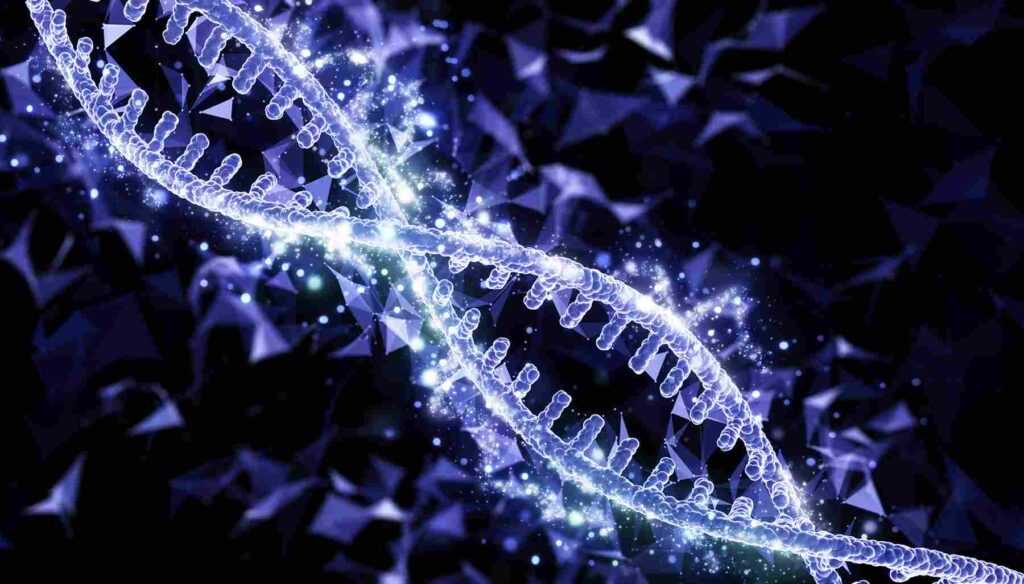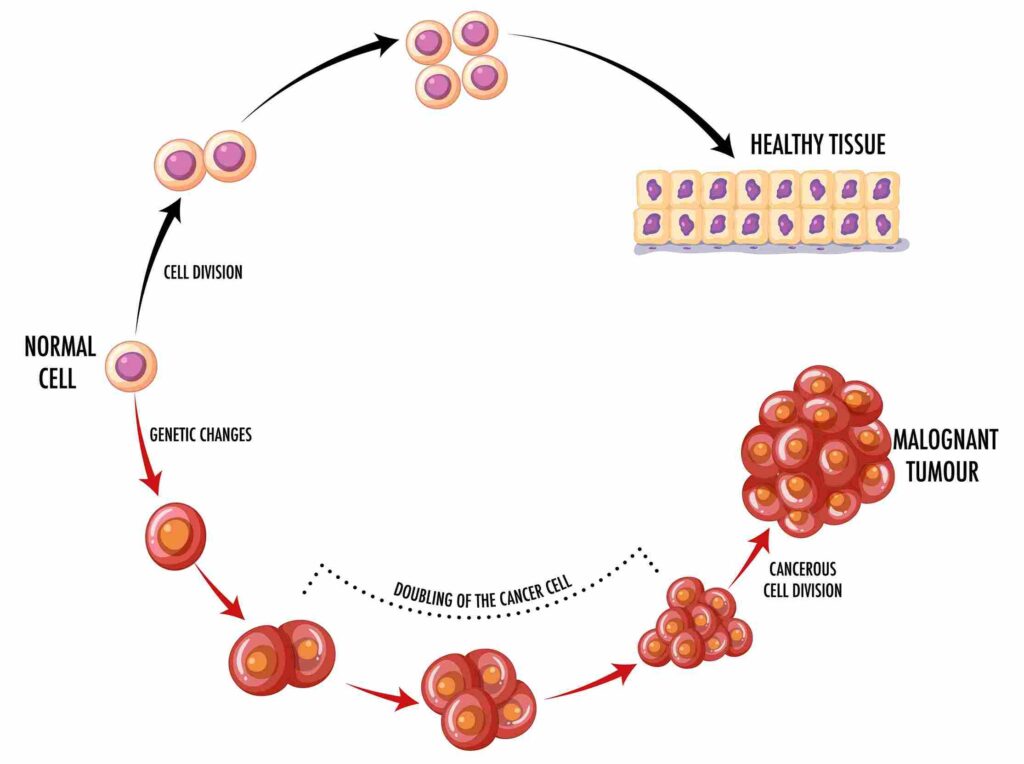Toshit Bahadur
Nutrition plays a crucial role against cancer with certain foods offering protective benefits due to their nutrient profiles. Among these, lycopene-rich foods stand out for their potent anticancer properties especially against gastrointestinal, prostate and breast cancer. Lycopene, a natural pigment that gives red and pink fruits their vibrant color, has garnered attention for its powerful antioxidant capabilities and its role in cancer prevention. The following are the various mechanisms that contribute to cancer prevention and therapy.

Antioxidant Properties of Lycopene

Lycopene’s primary anticancer mechanism lies in its powerful antioxidant properties, which enable it to neutralize reactive oxygen species (ROS) and protect cellular components from oxidative damage. The antioxidant action of lycopene targets single oxygen, peroxyl radicals and hydroxyl radicals.
- Decreased Lipid Peroxidation: Protecting cell membranes from oxidative damage
- Decreased Protein Oxidation: Maintaining protein functionality and preventing the formation of harmful protein aggregates
- Decreased DNA Damage: Preventing mutations that can lead to cancer
- Increased Cell Proliferation: Enhancing tissue regeneration and repair
- Modification of Cell Integrity: Preventing the transformation of normal cells into cancerous ones
- Decreased Cell Aging: Reducing the likelihood of age-related cancers
Decreased Cholesterol Levels
Lycopene has been shown to positively affect cholesterol metabolism, which may indirectly contribute to its anticancer effects
- Decreased Absorption of Dietary Cholesterol in the Intestine: Reducing the overall cholesterol levels in the body.
- Increased Expression and Activity of LDL receptors in the Liver: Lycopene enhances the liver’s ability to clear LDL cholesterol from the bloodstream.
- Decreased Cholesterol Synthesis: Lycopene inhibits the synthesis of cholesterol, lowering its levels and potentially reducing the risk of cancers associated with high cholesterol.
Decreased Inflammation and its Markers
Chronic inflammation is a known risk factor for cancer, and lycopene’s anti-inflammatory properties play a crucial role in its anticancer potential.
- Decreased TNF Alpha, IL-6, IL-1 Beta: Lycopene reduces the levels of pro-inflammatory cytokines, which are implicated in cancer progression.
- Inhibition of Activation of NF-KB: Deregulating inflammation and cell survival, thereby reducing cancer risk.
- Suppression of COX-2 Expression
- Modulation of MAPK Pathway and PI3K/Akt: Lycopene modulates these signaling pathways, which are critical for cell growth and survival, further contributing to its anti-inflammatory and anticancer effects.
- Increase in IL-10: Lycopene boosts IL-10, an anti-inflammatory cytokine, enhancing its protective effects against cancer.
Enhanced Intracellular Communication
Lycopene enhances intracellular communication, which is vital for maintaining normal cell function and preventing cancerous changes.
- Modified Stress Signal Pathway
- Inhibition of Activation of NF-KB
- Modulation of MAPK Pathway and PI3K/Akt
- Regulation of GAP Junctions: Essential for cell-to-cell communication and maintaining normal cell behavior.
- Modification of Signal Transduction Pathways: Ensuring proper cellular responses to external stimuli and preventing aberrant cell growth.
- Enhancement of Cell Adhesion: Reducing the potential for metastasis by preventing cancer cells from detaching and spreading.
- Inhibition of Cancer Cell Proliferation: By downregulating EGFR
- Regulation of Growth Factors: Ensuring balanced cell growth and preventing the uncontrolled proliferation characteristic of cancer.
- Promotion of Cell Differentiation: Reducing the likelihood of cancerous transformations.
- Epigenetic Changes (DNA Methylation and Histone Modification): Regulate gene expression and suppress oncogenes.
- Enhancing p53 Activity: Lycopene boosts the activity of p53, a key tumor suppressor gene, enhancing its ability to induce cell cycle arrest and apoptosis in cancer cells.
Apoptosis
Lycopene induces apoptosis, a process of programmed cell death, which is crucial for eliminating cancer cells.
- Intrinsic (Mitochondrial) Pathway
- Increases the Permeability of the Mitochondrial Membrane: Lycopene triggers the release of cytochrome c from mitochondria, initiating apoptosis.
- Activation of Caspases: Lycopene activates caspases, particularly caspase-9 and caspase-3, leading to cancer cell death.
- Extrinsic Pathway
- Upregulating Death Receptors on the Cell Surface: Lycopene increases the expression of death receptors, such as Fas and TRAIL receptors, on cancer cells.
- Activation of Caspases: Lycopene activates caspase-8 and subsequently caspase-3, promoting apoptosis.
- Downregulation of Anti-Apoptotic Proteins: Lycopene decreases the levels of anti-apoptotic proteins like Bcl-2 and Bcl-xL, making cancer cells more susceptible to apoptosis.
- Upregulation of Pro-Apoptotic Proteins: Lycopene increases the levels of pro-apoptotic proteins such as Bax, Bad, and Bak, enhancing the apoptotic response in cancer cells.
- Inhibition of Activation of NF-KB
- Modulation of MAPK Pathway and PI3K/Akt
Angiogenesis

Lycopene inhibits angiogenesis, the formation of new blood vessels, which is essential for tumor growth and metastasis.
- Inhibition of VEGF: Lycopene reduces the levels of VEGF, a key factor in angiogenesis.
- Reduction of Other Pro-Angiogenic Molecules: Lycopene decreases the levels of fibroblast growth factor (FGF) and platelet-derived growth factor (PDGF), further inhibiting angiogenesis.
- Downregulation of MMPs: Lycopene reduces the expression of matrix metalloproteinases (MMPs), enzymes involved in tissue remodeling and angiogenesis.
- Inhibition of Activation of NF-KB
- Modulation of MAPK Pathway and PI3K/Akt
Upregulation of Tumor Suppressor Genes.
- Enhancing p53 Activity: Lycopene boosts the activity of p53, a key tumor suppressor gene, enhancing its ability to induce cell cycle arrest and apoptosis in cancer cells.
Dosing – 15 – 45 mg
Food Sources – (per 100g)
- Tomatoes: 3.0 – 7.2 mg
- Watermelon: 4.5 – 6.2 mg
- Pink Grapefruit: 1.1 – 3.6 mg
- Red Bell Pepper: 0.5 – 1.2 mg
- Papaya: 1.8 – 2.9 mg
- Guava: 5.4 – 7.2 mg (especially pink guava)
Lycopene supplements are also available in various forms, including capsules, tablets, and soft gels. These supplements typically provide a standardized dose of lycopene, making it easier to ensure consistent intake.
Embracing a diet rich in lycopene can be a delicious and effective strategy for cancer prevention. By incorporating red and pink fruits and vegetables into your daily meals, you can take advantage of lycopene’s powerful antioxidant properties to protect your cells from oxidative damage, support DNA repair, and reduce the risk of cancer. As always, a balanced diet combined with a healthy lifestyle offers the best defense against cancer and other chronic diseases. So, make lycopene-rich foods a staple in your diet and enjoy both their taste and their health benefits.
Author’s Biography
Toshit Bahadur is an accomplished writer known for his insightful perspectives in medical communication. With a passion for natural health, yoga, and human experiences, Toshit blends nature’s healing with keen observation in his work. Toshit has written over 100 medical articles and founded the organization Nature’s Tranquility.

